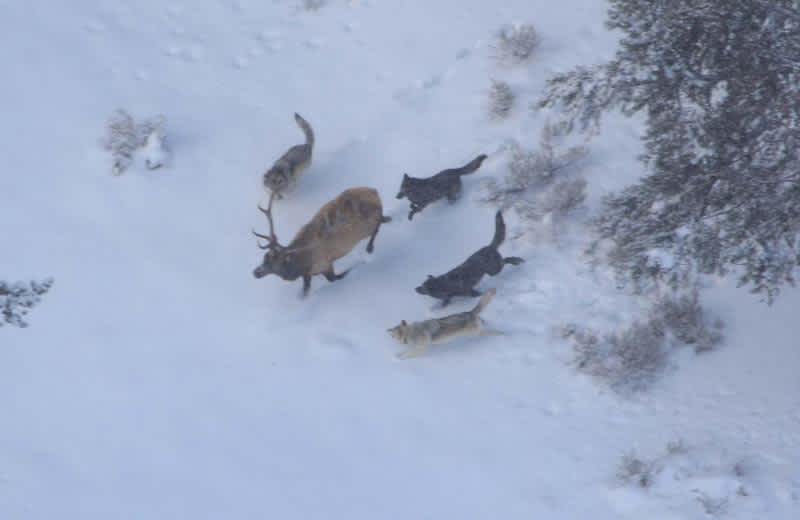Study Suggests Migration Harms Yellowstone Elk
OutdoorHub Reporters 06.14.13

A study published in the journal Ecology proposes that elk who migrate into the interior of Yellowstone National Park are less well off than animals who remain in the outer perimeter of the park year-round.
The paper’s researchers monitored 65 collared elk from the Clarks Ford herd over a three-year period from 2007 to 2010, recording the group’s struggle in birth rates and keeping calves alive. Meanwhile, animals that graze the integrated fields on the periphery of Yellowstone are thriving. While the migrant elk are facing a slow decline, the study’s lead author, biologist Arthur Middleton, told the Jackson Hole News and Guide that the migratory elk are, for now, not in immediate danger.
““What’s been cut is hunter opportunity,” Middleton said. “The [migratory] elk haven’t been declining in overall abundance. We’re not predicting that migratory elk are going to disappear, but the caveat is we don’t know if recruitment is going to continue to decline.”
The study revealed that the decline in the elk demographics are caused in part by predators, drought, and the reduced habitat quality that did not seem to affect non-migratory elk. Wolves and especially bears had a major impact on the elk traveling to the interior of the park, with bears amounting to 41 percent of marked calf deaths. In a previous study, Middleton and his team proposed that the loss of cutthroat trout in Yellowstone Lake have forced bears to hunt elk calves in order to survive. Loss of forage and climate changes have also worn down the elk herds by stressing female elk, reducing pregnancy rates by nearly 20 percent. As a result, traditional migration corridors are now in jeopardy.
“At least broadly, the focus on conserving migratory animals has been–for perfectly good reasons–on physical barriers,” Middleton said. “Those are important. But there are other factors in play that aren’t necessarily about the corridors. This work suggests we ought to also be paying attention to subtler changes in predation and food quality on the seasonal ranges of these animals, because we’re influencing these things.”
Middleton says that these new discoveries should impact the way that park management approach conservation.

